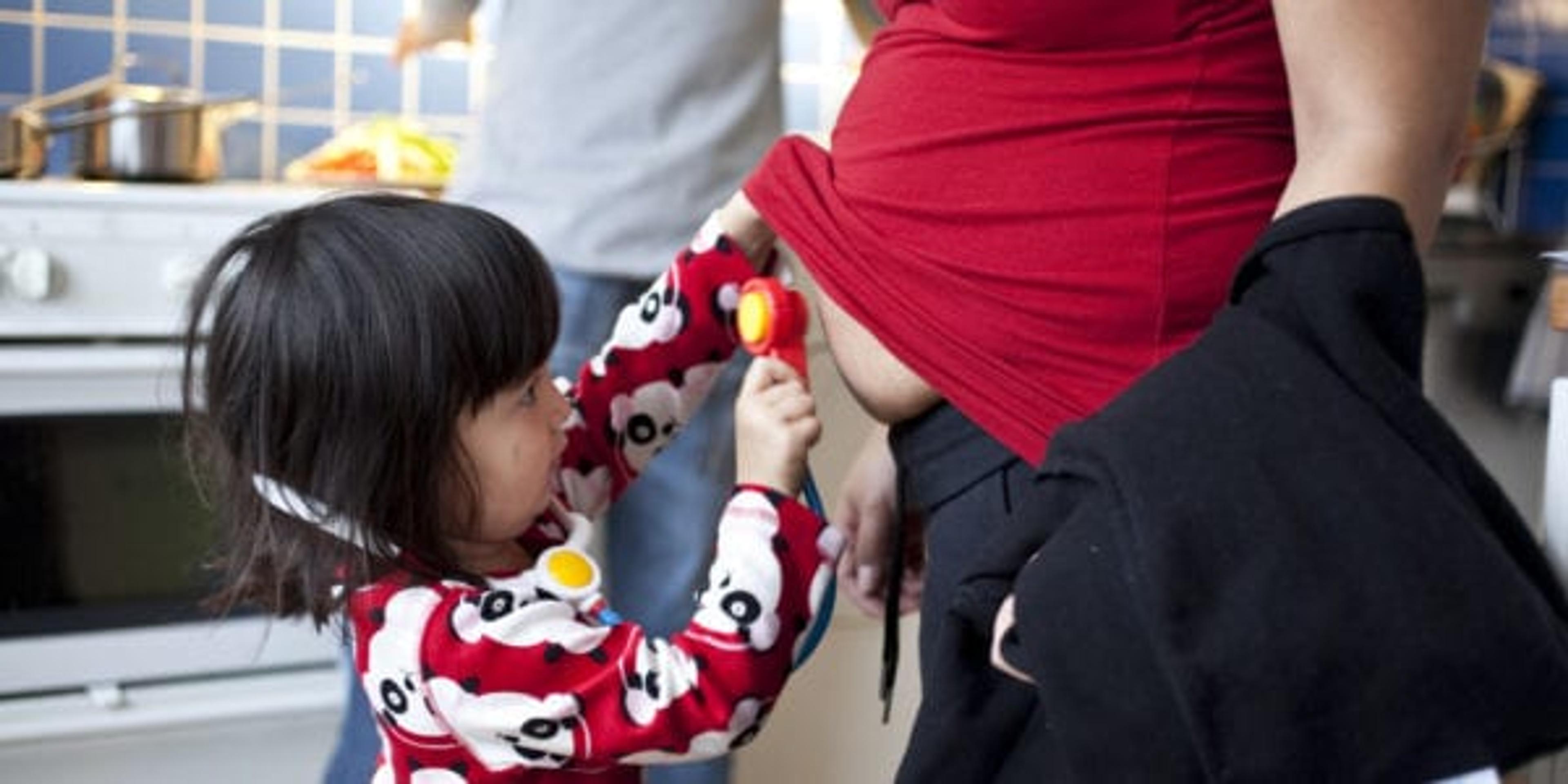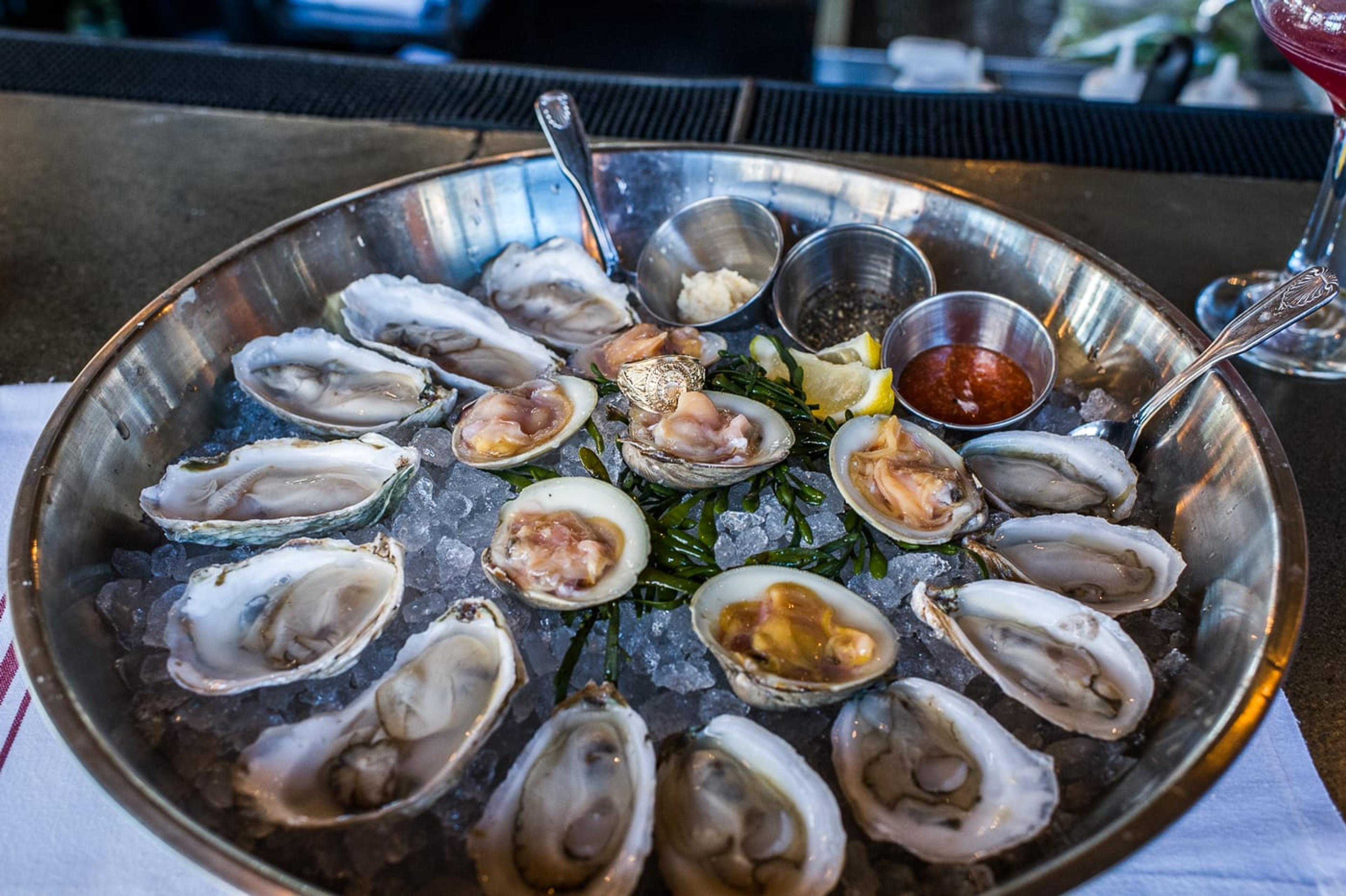Know Which Foods to Limit or Avoid When You are Pregnant
Registered Dietician
| 6 min read

As a registered dietitian, I have discussed the “proper” diet with many a pregnant woman. This includes the standard advice to eat well-balanced, nutrient-dense foods with lots of color throughout the day, making sure to include whole grains, lean proteins and plenty of water to stay hydrated. But there are also certain foods that pregnant women must limited or avoid altogether to keep the baby and expecting mother healthy.
I feel like being pregnant — I am 20 weeks now pregnant, halfway there — is synonymous with eating. Expecting our first child and being pregnant has definitely been quite the experience, and we can’t wait to meet Baby Derocha. It’s amazing to me how much more strategic I am with my daily meal plan because it is for more than just me, it is for our baby.
If you’re pregnant, you can use the following nutritional information to help keep babies and expectant mommies healthy.
Skip the Raw Bar
Pregnant women should avoid raw meats, seafood and certain other foods because of the increased risk for a variety of foodborne illnesses:
- Sushi or sashimi with raw fish — This has been a difficult one for me. I have actually had at least three dreams about sushi since I found out I was pregnant. The risk lies in the potential for parasites in the raw fish.
- Raw shellfish, such as oysters and clams
- Raw or undercooked eggs — Any food that may contain raw eggs is not a good idea because of the potential exposure to salmonella. Some examples of this would be most Caesar salad dressings, cookie dough, homemade ice cream or custard made with raw eggs or Hollandaise sauce.
- You should also cook all meats, fish and poultry thoroughly to avoid any food poisoning or foodborne illness.

Non-Pasteurized Foods
Pregnant women should also avoid foods that are not pasteurized, such as:
- Soft cheeses like brie, feta, blue cheese, Camembert and Mexican-style cheeses like queso blanco, queso fresco, and panela. Note that you can have these cheeses if the packaging states it is pasteurized or it is made with pasteurized milk.
- Unpasteurized juices such as ciders, especially the ones made locally. Most grocery store-bought juices are pasteurized, but be sure to read the food label to be sure.
Listeria
Listeria — and any foodborne illness for that matter — is very dangerous for you and the baby when pregnant. The immune system of is different for pregnant women than it is for non-pregnant women. Listeria is known to have the ability to cross the placenta to the baby and can cause infection or blood poisoning, which could lead to miscarriage.
Here are some things to think about to avoid listeria and keep the baby safe.
- Pâté — Meat spreads or refrigerated pâtés should be avoided. Canned pates or shelf-safe pates would be OK for pregnant women to consume.
- Lunch or deli meats and any processed meats (such as hot dogs) are known to contain listeria. If you want to eat these foods, they must be cooked thoroughly until steaming hot.
- Smoked seafoods, such as lox, Nova style, kippered or jerky, are known to carry listeria as well. If these smoked seafoods are cooked into a meal, like a casserole or soup, they are safe to eat.
Know Your Fish
Fish and seafood are great sources of protein and should be part of a regular diet. However, pregnant women must be careful and avoid certain fish and limit others.
Avoid:
- Raw fish, oysters and clams
- Cured fish such as gravlax
- Fish containing high amounts of mercury. This usually includes large fish such as swordfish, tuna, shark, tile fish, and king mackerel.
Limit:
- Other fish also have some traces of mercury and should be limited. The goal is to have only 12 ounces a week, according to the Food and Drug Administration, so two to three small fish meals per week max.
- The fish or seafood you can enjoy in limited amounts include salmon, catfish, pollack, shrimp, and canned light tuna.
- Note that if you are having canned white albacore tuna, you should limit that to a maximum of 6 ounces per week of your alloted 12 ounces because it has a higher mercury content than chunk light tuna.
- Lastly, if you’re eating fish caught locally, check online with the Michigan Department of Community Health for fish advisories. If you can’t find any information, then limit it to 6 ounces of local fish per week.
Watch What You Drink
- Alcohol should be avoided during pregnancy. There is no amount that is considered safe for the baby growing inside you.
- Caffeine should be limited to less than 200 mg per day — about 6 ounces of coffee — or avoided all together. There is some evidence that caffeine increases the chances of miscarriage, premature birth, low birth weight and even withdrawal symptoms in infants.
- Diet sodas often contain both caffeine and an artificial sweetener. There are several types of artificial sweeteners you may see on nutrition labels:
- Aspartame (NutraSweet): Seems to be OK when consumed in moderation (the amount found in one or two 12-ounce servings of soda per day).
- Saccharin (Sweet’n Low): Saccharin was found to cause birth defects in laboratory rats when consumed in very high amounts. Because its safety in smaller amounts is hard to determine, I would advise avoiding this particular sugar substitute.
- Sucralose (Splenda): This relatively new sweetener, a modified form of regular table sugar, appears to be safe. But because it hasn’t been extensively studied, it’s best used in moderation as well.
Now that I have given you some guidelines regarding foods to avoid during pregnancy, don’t forget to include all the nutritious food choices daily as well. Initially, for me the caffeine and fish restrictions were difficult. I used to eat fish on average about three times per week and now I definitely limit it to twice per week. I also used to drink diet soda, about one or two per day, and I have cut all soda out completely. I won’t lie, I do miss the caffeine and my morning coffee (now I have a cup of tea, which has less caffeine), but it is amazing what you will do for your child. I am already learning mommy lessons of sacrifice and love.
What do you think of some of these restrictions for pregnant women? How have you coped with giving up some of your favorites?
Photo credit: Mats Erikkson and Jazz Guy via Flickr
If you found this post useful, make sure to check out:
Editor’s note: This post first appeared on A Healthier Michigan.org in March 2012.





